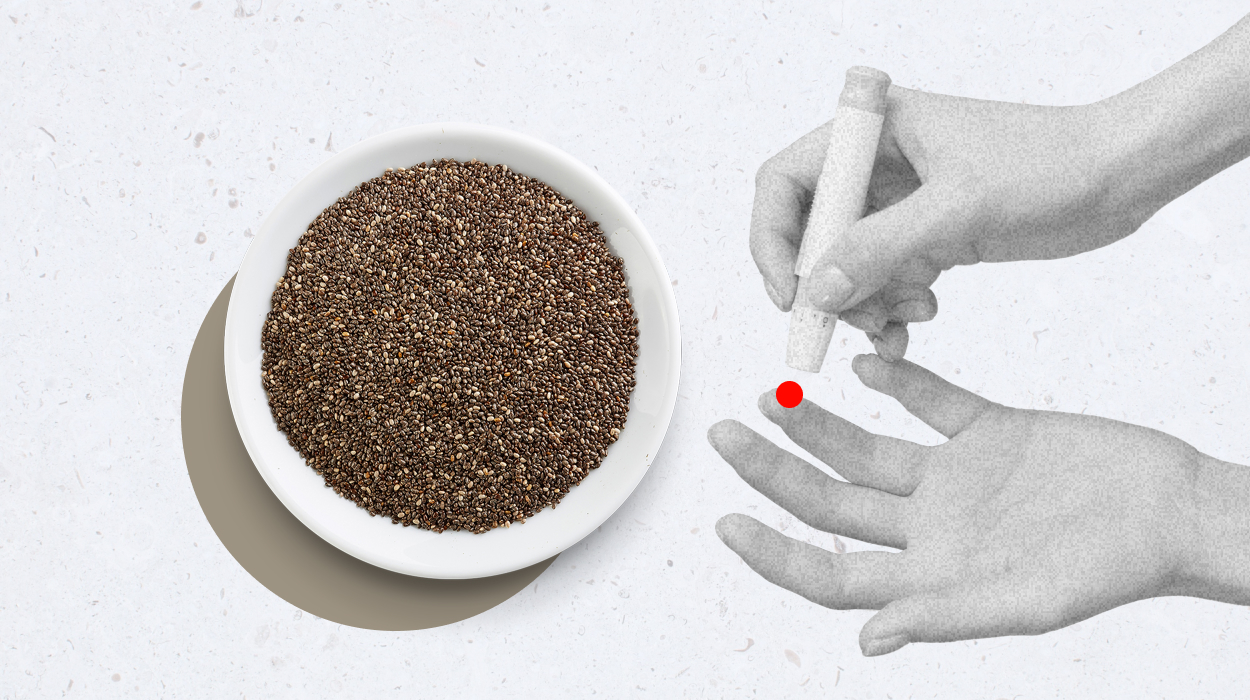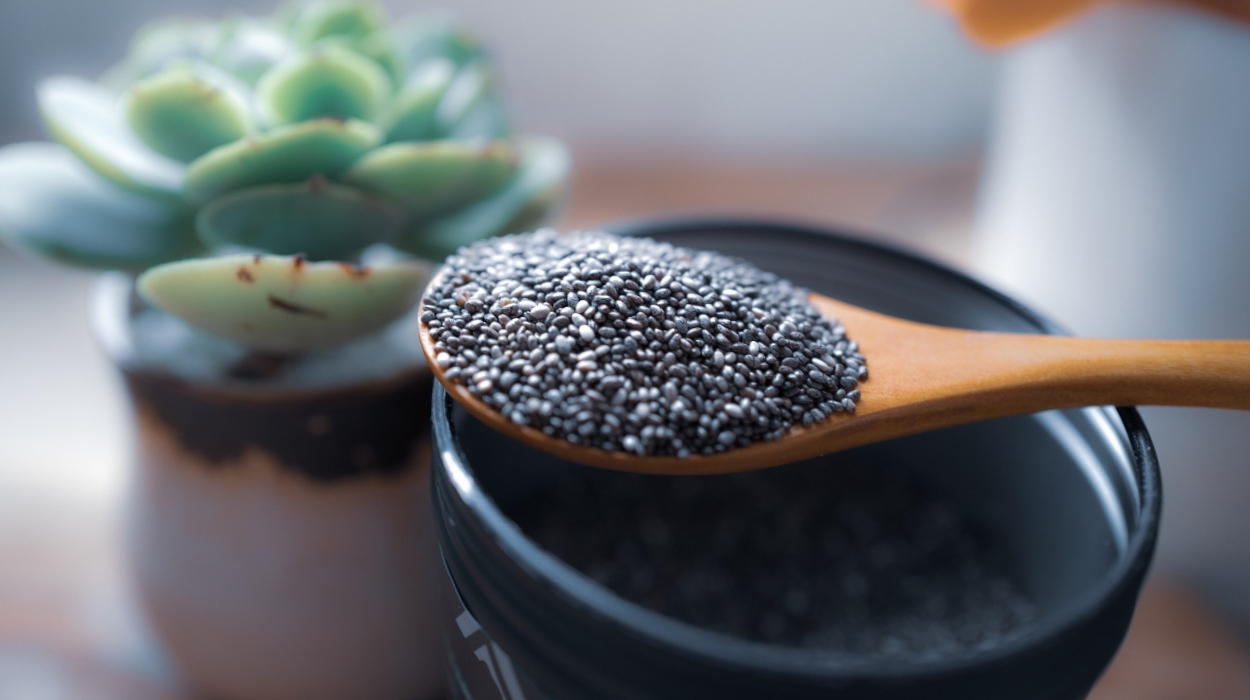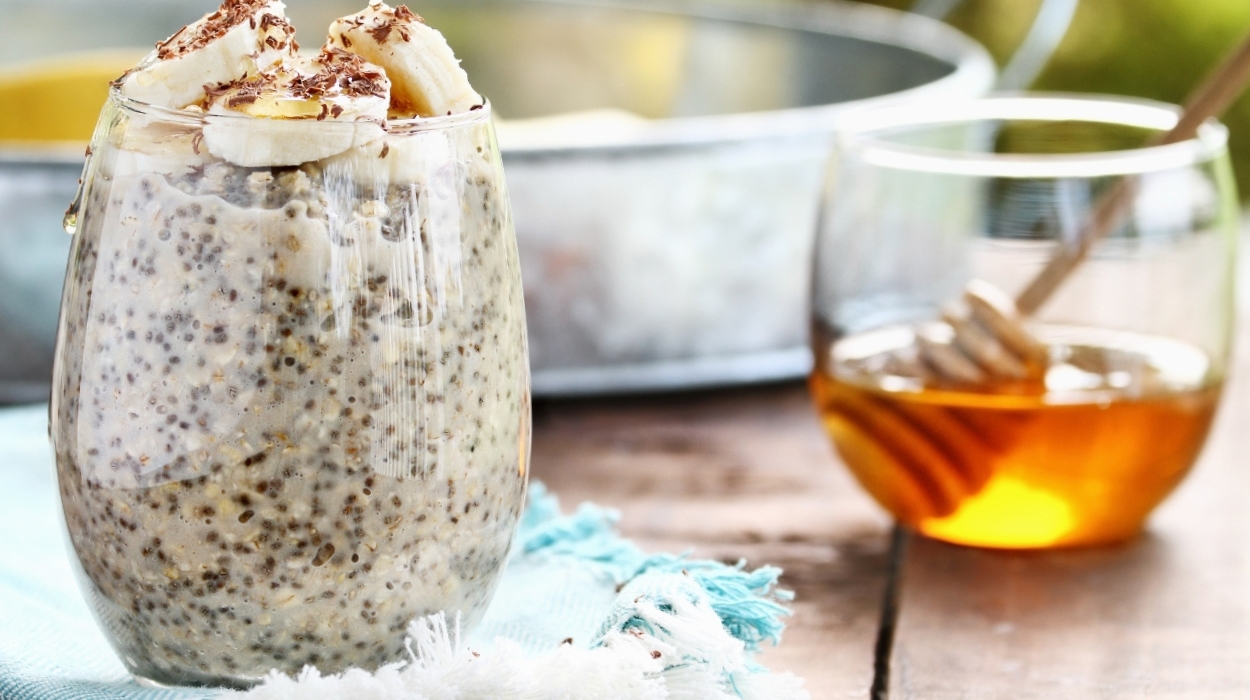 Expert's opinion
Expert's opinion
Expert's opinion
The article is a subjective view on this topic written by writers specializing in medical writing.
It may reflect on a personal journey surrounding struggles with an illness or medical condition, involve product comparisons, diet considerations, or other health-related opinions.
Although the view is entirely that of the writer, it is based on academic experiences and scientific research they have conducted; it is fact-checked by a team of degreed medical experts, and validated by sources attached to the article.
The numbers in parenthesis (1,2,3) will take you to clickable links to related scientific papers.
Is Chia Seeds Good for Diabetes? What Experts Say

Are chia seeds good for diabetes? Chia seeds benefit diabetic patients due to their blood sugar-stabilizing effects, ability to reduce insulin resistance, and high nutrient density. They are the edible seeds that come from a flowering plant and are a fiber-rich superfood.
Including chia seeds, along with other blood sugar-stabilizing foods and regular exercise, can make a significant, positive impact on diabetes. Chia seeds make great snacks for diabetes but can also be mixed into main dishes.
In addition to their vitamin, mineral, and fiber content, chia seeds contain all three macronutrients: protein, fat, and carbohydrates. For diabetics interested in adding more protein, you can also look into the Orgain protein powder review, which is one of the best protein powders for diabetics.
Is Chia Seeds Good for Diabetes?
Keeping blood glucose levels regulated is crucial for those struggling with diabetes, and chia seeds can help do just that. Among other things, these nutrient-dense seeds[1] have a low glycemic index, are high in fiber, are a good source of omega-3 fatty acids, and can improve various aspects of well-being, including heart health, bone health, and digestive health.
What Nutrients In Chia Seeds Help Diabetes?
Fiber is crucial for diabetes management, and chia seeds are an excellent source of soluble fiber. High fiber intake has many health benefits, such as weight loss and heart health[2]. Fiber puts the breaks on sugar, meaning how sugar is absorbed in the body. By slowing down sugar absorption, we can reduce glucose spikes, and over time, this regulates blood sugar levels.
The omega-3 fatty acids in chia seeds play an important function in diabetes management, as well. These anti-inflammatory fats not only improve insulin sensitivity[3] but also reduce diabetes-related risk for coronary problems.
Additionally, chia seeds offer protein, which helps increase satiety and regulate appetite. This is an important element in maintaining a healthy weight and stable glucose levels in the body.
Some of the minerals found in chia seeds, such as magnesium, zinc, and calcium, are key players in important metabolic processes, including how the body metabolizes glucose (sugar) and uses insulin. These minerals also play a vital role in bone health[4].
The Benefits Of Chia Seeds In A Diabetes Diet

Diabetes is linked with other health complications; therefore, the health benefits of eating chia seeds extend far beyond diabetes management alone.
Prevent High Blood Sugar Levels
Blood sugar management is essential for diabetics. Dietary fiber[5] works to slow down sugar absorption in the body, which leads to more even glucose levels throughout the day. Without fiber, when we eat carbs, our blood sugar spikes drastically, subsequently dropping. When we pair sugar with fiber, fat, and protein, blood sugar levels are more stable, and insulin resistance can be reduced.
Increase Satiety
The healthy fat, protein, and dietary fiber in chia seeds help us feel satiated. More satiety means less snacking and better weight management, which is important for many diabetics. Chia seeds also help steady glucose levels, which allows hunger to come on gradually after longer periods rather than coming on intensely or frequently.
Reduced Risk For Heart Disease
Many of the nutrients in chia seeds work together to improve heart health, an aspect of health that is intricately linked with diabetes. The vitamins, minerals, and essential fats in the seeds all play a role, but fiber, in particular, has been shown to lower LDL (“bad”) cholesterol[6] and may reduce blood pressure.
Help Maintain A Healthy Weight
By adding chia seeds to some of your favorite dishes and drinks; you increase the nutrient content. In doing so, you’re provided with better nourishment, more balance, and increased satiety; without these elements, hunger can drive overeating, cravings for unhealthy sweets, and present more difficulty in managing weight.
How Can Diabetics Add Chia Seeds to Their Diet?

Recap the benefits of chia seeds while adding variety to your diet.
Add To Oatmeal
Eat chia seeds with oatmeal sprinkled on top or mixed in while cooking the oats. This can add texture and nutrition to plain oatmeal. For diabetics, remember that oats are pure starch and can cause a glucose spike. Adding chia seeds can help reduce the glucose spike; however, for extra glucose support, opt for steel-cut oats rather than instant oats; steel-cut oats break down slower in the body, causing less of a glucose spike.
Create A Pudding
Grab your favorite unsweetened milk and a few spoonfuls of chia seeds and get ready to enjoy chia seed pudding. To make chia pudding, simply add the seeds to milk (about three times as much milk as chia seeds) and stir. Wait a few minutes and stir again. Repeat until all the clumps are gone, and the seeds have expanded into a gel-like consistency. Add your favorite low-glycemic fruit and seeds as desired.
Use In Crackers, Muffins, And Pancakes
Chia seeds can be added to any baked goods, including muffins, pancakes, and crackers. Choose a low-glycemic flour, such as almond flour or quinoa flour (something with protein, not just carbs), or a multigrain flour to make your baked goods. Mix eggs, spices, berries, nuts, and chia seeds into the batter. Bake and enjoy! Note: You can also grind the seeds and use them as an egg substitute.
Make Chia Seed Coffee
You can add chia seeds to any liquid to make them expand into a pudding texture. Liven up your morning cup of coffee by adding chia seeds to it. You may choose decaf or regular, hot or iced coffee. If using milk, choose sugar-free milk.
Add To Smoothies
Many smoothies are sugar bombs–they consist only of fruit. The healthiest kind of smoothie is a balanced one, with good sources of protein, healthy fats, and fiber, not just fruit.
Adding chia seeds to smoothies can boost their protein, fat, and fiber content. Diabetics, in particular, need to watch their blood glucose levels, so when making a smoothie, choose low-glycemic fresh fruit, such as berries, and prioritize seasonal fruits. Also, add avocado, nut butter, MCT oil, and chia seeds for healthy fat to avoid a blood sugar spike.
Make Chia Seed Water
If you want to upgrade your regular glass of water, put some chia seeds in it. This will add vitamins, minerals, fiber, fat, and protein. Chia seed water offers a satiating drink with a pudding consistency. You can drink it on its own or mix it into other dishes. Chia seed water gives you the bonus of combining hydration with fiber; it’s important to increase water intake whenever increasing fiber to avoid constipation.
Potential Side Effects Of Chia Seeds For Diabetes
Though chia seeds can help manage diabetes, every case is different, and there are chia seed side effects to be aware of. For example, the omega-3 fatty acids in chia seeds may be harmful to people who are taking blood thinners. Chia seeds can help balance blood sugar, but this should still be monitored because different people will respond differently.
Chia seeds are high in calories, so if weight gain is a concern, be mindful of your portion sizes when consuming chia seeds. Also, chia seeds may lower blood pressure, which is good if you have high blood pressure. However, if this is a concern, talk to your doctor.
Chia seeds also contain lectins, natural plant compounds that protect the plant from being eaten by bugs. Lectins are harmless for many people, but some react adversely to them. If you’re one of them, consider swapping out chia seeds for other lectin-free superfoods.
Conclusion
Chia seeds are a nutritious superfood that offers a rare combination of all three macronutrients (protein, fat, and carbohydrates) and have rich dietary fiber content. These nutrients have powerful metabolic effects that are beneficial for diabetic patients, those with high blood pressure, and potentially other heart-related conditions.
In particular, the fiber in the seeds slows down sugar absorption and reduces glucose in the bloodstream. While chia seeds are an excellent addition to a diabetic’s diet thanks to their essential nutrients, they should not be relied on solely to reverse or manage diabetes, but rather, should be included in a well-rounded, whole foods-based diet. Individuals who are curious to try chia seeds should consult with their doctor.
Frequently Asked Questions
Chia seeds have rich fiber content, are great for bone health, and, when added to a meal, they can prevent a glucose spike, but they alone cannot cure any disease, including diabetes. They must be consumed as part of a balanced diet for diabetes management.
Yes. With all their essential minerals, they offer the same health benefits for type 1 and type 2 diabetes. In both cases, they can improve blood glucose levels.
Anyone on blood thinning medications or with a seed allergy should avoid chia seeds. Dry chia seeds also have the potential to be a choking hazard for some people. For those individuals, soaked chia seeds or ground seeds are better. To avoid any diabetes complications, consult with your doctor.
Fruit juice contains a lot of sugar. It’s better to eat foods that are low in sugar, so if you’re going to use liquid to make a pudding, use coffee, water, or unsweetened milk.
+ 6 sources
Health Canal avoids using tertiary references. We have strict sourcing guidelines and rely on peer-reviewed studies, academic researches from medical associations and institutions. To ensure the accuracy of articles in Health Canal, you can read more about the editorial process here
- Usda.gov. (2023). FoodData Central. [online] Available at: https://fdc.nal.usda.gov/fdc-app.html#/food-details/170554/nutrients.
- McRae, M.P. (2017). Dietary Fiber Is Beneficial for the Prevention of Cardiovascular Disease: An Umbrella Review of Meta-analyses. [online] 16(4), pp.289–299. doi:https://doi.org/10.1016/j.jcm.2017.05.005.
- Hu, C., Zhou, Y., Wu, X., Jia, X., Zhu, Y., Zheng, R., Wang, S., Lin, L., Qi, H., Lin, H., Li, M., Wang, T., Zhao, Z., Xu, M., Xu, Y., Chen, Y., Ning, G., Borges, M.-C., Wang, W. and Zheng, J. (2023). Evaluating the distinct pleiotropic effects of omega-3 fatty acids on type 2 diabetes mellitus: a mendelian randomization study. [online] 21(1). doi:https://doi.org/10.1186/s12967-023-04202-7.
- Price, C.C., Langford, J.R. and Liporace, F.A. (2012). Essential Nutrients for Bone Health and a Review of their Availability in the Average North American Diet. [online] 6(1), pp.143–149. doi:https://doi.org/10.2174/1874325001206010143.
- CDC (2022). Fiber: The Carb That Helps You Manage Diabetes . [online] Centers for Disease Control and Prevention. Available at: https://www.cdc.gov/diabetes/library/features/role-of-fiber.html#:~:text=Specifically%2C%20fiber%20can%20help%3A,sugar%20in%20your%20target%20range.
- Tello, M. (2019). Fiber-full eating for better health and lower cholesterol – Harvard Health. [online] Harvard Health. Available at: https://www.health.harvard.edu/blog/fiber-full-eating-for-better-health-and-lower-cholesterol-2019062416819.



